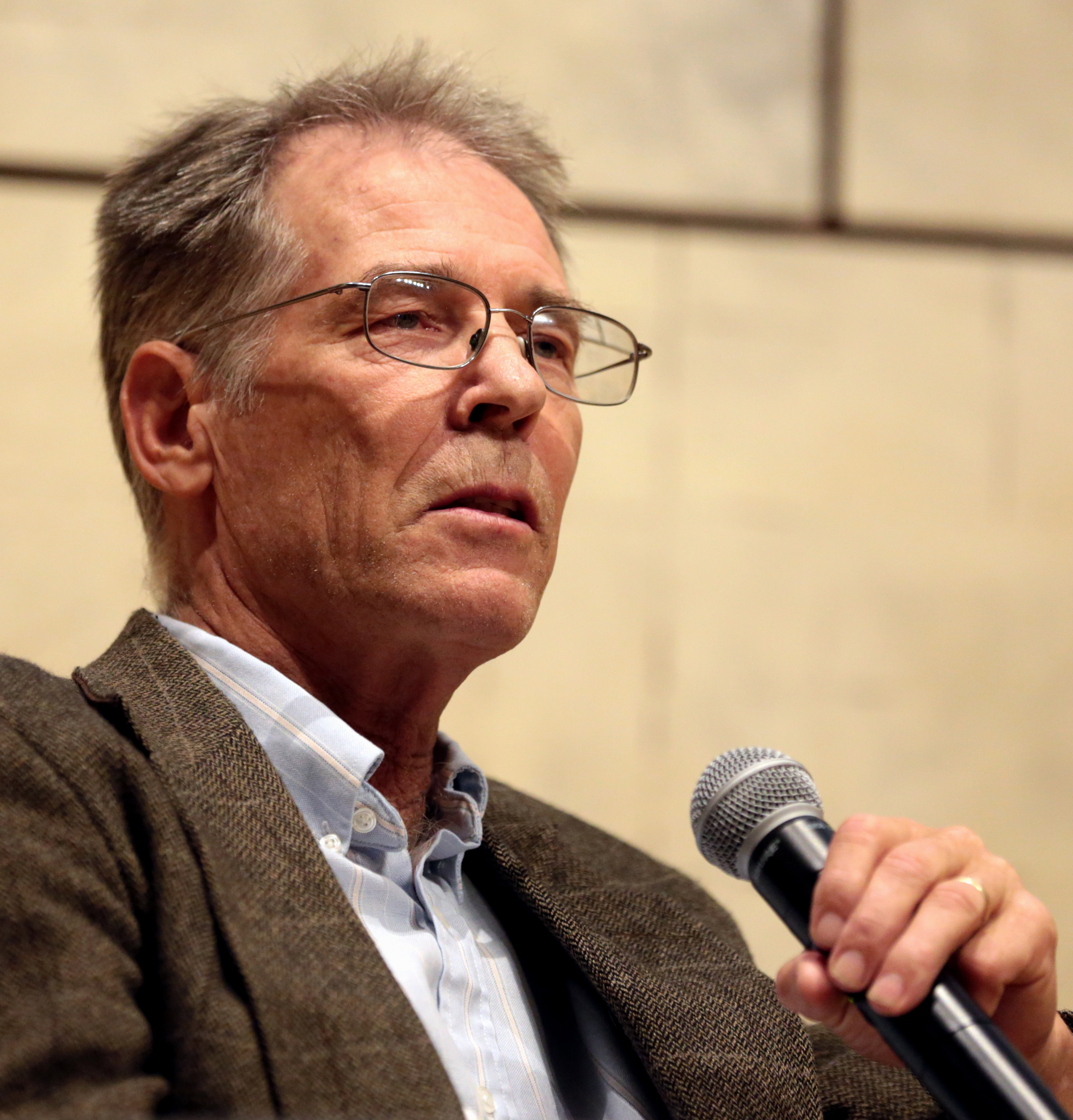Źródło: Lata ryżu i soli (2002), tłum. Łukasz Tabaka
Dzieło
Lata ryżu i soli
Kim Stanley RobinsonKim Stanley Robinson cytaty
Kim Stanley Robinson: Cytaty po angielsku
Interview http://www.locusmag.com/1997/Issues/09/KSRobinson.html in Locus, (September 1997)
Kontekst: Science fiction rarely is about scientists doing real science, in its slowness, its vagueness, the sort of tedious quality of getting out there and digging amongst rocks and then trying to convince people that what you're seeing justifies the conclusions you're making. The whole process of science is wildly under-represented in science fiction because it's not easy to write about. There are many facets of science that are almost exactly opposite of dramatic narrative. It's slow, tedious, inconclusive, it's hard to tell good guys from bad guys — it's everything that a normal hour of Star Trek is not.
Interview http://www.locusmag.com/1997/Issues/09/KSRobinson.html in Locus, (September 1997)
Kontekst: Science fiction rarely is about scientists doing real science, in its slowness, its vagueness, the sort of tedious quality of getting out there and digging amongst rocks and then trying to convince people that what you're seeing justifies the conclusions you're making. The whole process of science is wildly under-represented in science fiction because it's not easy to write about. There are many facets of science that are almost exactly opposite of dramatic narrative. It's slow, tedious, inconclusive, it's hard to tell good guys from bad guys — it's everything that a normal hour of Star Trek is not.
Coyote ("What Is to Be Done?", p. 370)
Green Mars (1993)
Kontekst: Even if you want no state, or a minimal state, then you have to argue point by point. Especially since the minimalists want to keep the economic and police system that keeps them privileged. That's libertarians for you — anarchists who want police protection from their slaves. No! If you want to make the minimum-state case, you have to argue it from the ground up.
Źródło: Galileo's Dream (2009), Ch. 13, p. 280
Kontekst: We all have seven secret lives. The life of excretion; the world of inappropriate sexual fantasies; our real hopes; our terror of death; our experience of shame; the world of pain; and our dreams. No one ever knows these lives. Consciousness is solitary. Each person lives in that bubble universe that rests under the skull, alone.
“People then form their judgment on what they think of X and Y.”
John Boone
Red Mars (1992)
Kontekst: The only part of an argument that really matters is what we think of the people arguing. X claims a, Y claims b. They make arguments to support their claims with any number of points. But when their listeners remember the discussion, what matters is simply that X believes a and Y believes b. People then form their judgment on what they think of X and Y.
“The only part of an argument that really matters is what we think of the people arguing.”
John Boone
Red Mars (1992)
Kontekst: The only part of an argument that really matters is what we think of the people arguing. X claims a, Y claims b. They make arguments to support their claims with any number of points. But when their listeners remember the discussion, what matters is simply that X believes a and Y believes b. People then form their judgment on what they think of X and Y.
“That's libertarians for you — anarchists who want police protection from their slaves.”
Źródło: Green Mars
“What we need is equality without conformity.”
Źródło: Green Mars (1993)
“Science was many things, Nadia thought, including a weapon with which to hit other scientists.”
Źródło: Red Mars (1992)
“A sudden gust: How big the world seems in a wind.”
Book 1: "Awake to Emptiness", Ch. 1
The Years of Rice and Salt (2002)
As quoted in John Clute, "Scores" http://www.strangehorizons.com/2010/20100118/clute-c.shtml, in Strange Horizons (18 January 2010)
Galileo's Dream (2009)
“Rock is much more malleable than ideas.”
Book 6: "Widow Kang", Ch. 3
The Years of Rice and Salt (2002)
Book 1: "Awake to Emptiness", Ch. 2
The Years of Rice and Salt (2002)
“One of the chief features of incompetence was an inability to see it in oneself.”
Źródło: Galileo's Dream (2009), Ch. 13, p. 295
Book 1: "Awake to Emptiness", Ch. 2
The Years of Rice and Salt (2002)
“Science is--or should be--the greenest force of all.”
As quoted in "Heroes of the Environment 2008" http://content.time.com/time/specials/packages/article/0,28804,1841778_1841779_1841803,00.html in Time (24 September 2008)
As quoted in "Future tense" in The Guardian (14 September 2005) http://www.guardian.co.uk/books/2005/sep/14/sciencefictionfantasyandhorror.sarahcrown
As quoted in "Future tense" in The Guardian (14 September 2005)
Book 4: "The Alchemist", § 11
The Years of Rice and Salt (2002)
thoughts of Frank Chalmers
Red Mars (1992)
“It was not power that corrupted people, but fools who corrupted power.”
Nadia Chernyshevski
Green Mars (1993)
